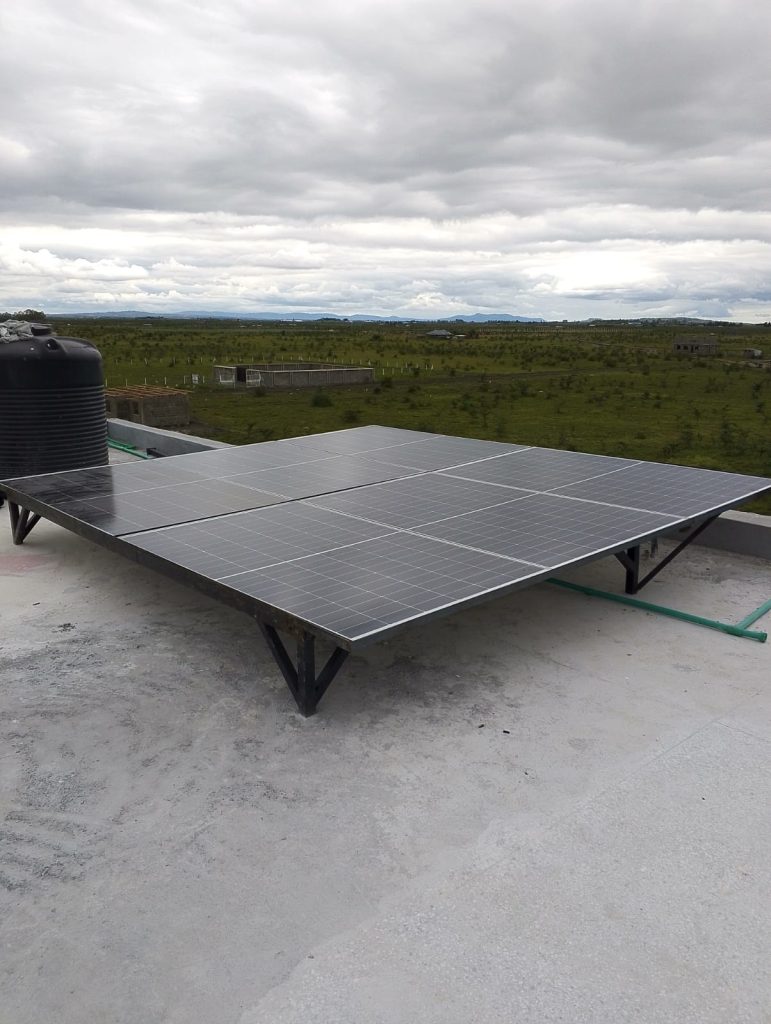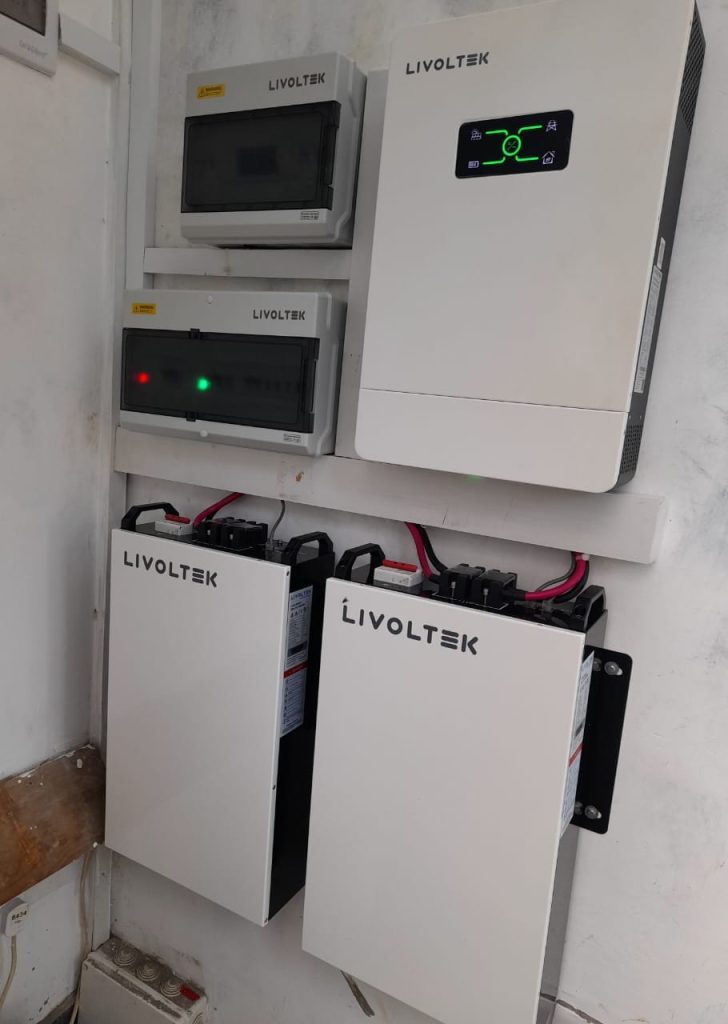Don't miss our holiday offer - up to 50% OFF!
Lighten Your Load, Lighten Your Bill: How Solar Panels Kenya Can Save You Money on Electricity
So, why should you care about solar panels Kenya? High electricity bills can be a significant burden on families and individuals, causing financial stress and emotional strain. Many Kenyan households are grappling with the rising cost of energy, leaving them searching for viable, long-term solutions. Fortunately, solar panels offer an effective way to reduce electricity costs and ease the emotional and financial burden.
Table of Contents
The Burden of High Electricity Bills
Electricity prices in Kenya have been steadily increasing, putting a strain on working-class families. High bills mean less money for essential needs, education, and even leisure activities. The anxiety of dealing with these expenses month after month can take a toll on one’s emotional well-being.
According to the Kenya National Bureau of Statistics (KNBS), the cost of electricity has increased by over 50% in the last decade. This steep rise has been attributed to factors such as the devaluation of the Kenyan shilling, increased fuel costs, and infrastructure investments. For many households, this translates to a significant portion of their income being directed towards energy expenses, often at the expense of other crucial needs.
Solar Panels: A Viable Solution
Solar panels provide a sustainable and cost-effective alternative to traditional electricity sources. By harnessing the power of the sun, households can significantly reduce or even eliminate their reliance on grid electricity. Here’s how solar panels can help lighten your load and your bill:
- Reduced Monthly Expenses: Once installed, solar panels generate free electricity from the sun. This can lead to substantial savings on your monthly electricity bills. According to a report by the International Renewable Energy Agency (IRENA), households can save up to 50% on their electricity bills by switching to solar energy.
- Energy Independence: With your own source of energy, you’re less affected by fluctuations in electricity prices and power outages. This is particularly important in Kenya, where power outages are frequent due to various factors, including maintenance issues and natural occurrences such as storms.
- Environmental Benefits: Solar energy is a clean, renewable resource that reduces your carbon footprint and contributes to a healthier planet. Transitioning to solar power can significantly reduce greenhouse gas emissions, aligning with global efforts to combat climate change.
Affordable and Reliable Solar Panels Kenya
Investing in affordable solar panels in Kenya is now more accessible than ever. Companies offer reliable solar panel installation services that cater to various budgets and needs. Whether you’re looking for a small system to power essential appliances or a larger setup for complete energy independence, there’s a solution for you.
Market Trends and Growth: The solar market in Kenya has experienced significant growth in recent years. According to the Kenya Renewable Energy Association (KEREA), the adoption of solar energy solutions has been growing at an annual rate of 10-15%. This growth is driven by increasing awareness of the benefits of solar energy, government incentives, and the decreasing cost of solar panel technology. The Kenyan government has also introduced policies to support renewable energy adoption, including tax exemptions and subsidies for solar equipment.
Technological Advancements: Advancements in solar technology have made solar panels more efficient and affordable. Innovations such as bifacial solar panels, which capture sunlight from both sides, and energy storage solutions, like lithium-ion batteries, have increased the viability of solar power for residential use. These technologies ensure that households can store excess energy generated during the day for use at night, enhancing the reliability of solar power systems.

Success Stories: Real Benefits for Kenyan Families
Testimonial: The Otieno Family, Nairobi
“The rising electricity bills were really straining our budget. We decided to invest in solar panels, and it has been a game-changer for us. Our monthly expenses have significantly reduced, and the savings have allowed us to improve our home and save for our children’s education.”
Testimonial: Mwikali’s Experience in Mombasa
“As a single mother, I was constantly worried about the high electricity costs. Since installing solar panels, I’ve experienced immense relief. The financial savings are great, but the peace of mind is priceless.”
The Economic Impact of Solar Energy Adoption
Adopting solar energy not only benefits individual households but also has a broader economic impact. The growth of the solar industry in Kenya has created numerous job opportunities, from installation technicians to sales and marketing professionals. According to a report by the United Nations Environment Programme (UNEP), the renewable energy sector in Kenya has the potential to create over 50,000 jobs by 2030.
Additionally, solar energy reduces the country’s dependence on imported fossil fuels, improving energy security and reducing the trade deficit. The savings from reduced fossil fuel imports can be redirected towards other critical areas such as healthcare, education, and infrastructure development.
Government and Policy Support
The Kenyan government has recognized the importance of renewable energy and has implemented various policies to encourage its adoption. The Energy Act of 2019 outlines the regulatory framework for renewable energy development and provides incentives for both consumers and investors. Some of the key policies include:
- Tax Exemptions: Import duties and VAT on solar equipment and accessories are exempt, making solar installations more affordable.
- Net Metering: This policy allows households with solar panels to sell excess electricity back to the grid, providing an additional source of income and further reducing energy costs.
- Financing Options: The government, in collaboration with financial institutions, has introduced affordable financing options for solar energy systems, including low-interest loans and pay-as-you-go models.
The Future of Solar Energy in Kenya
The future of solar energy in Kenya looks promising, with continuous advancements in technology and increasing awareness of its benefits. Several trends are likely to shape the future of solar energy in the country:
- Increased Adoption of Smart Grids: Smart grid technology, which integrates renewable energy sources like solar power with the existing electricity grid, will enhance energy efficiency and reliability. This will allow for better management of energy supply and demand, reducing power outages and improving grid stability.
- Community Solar Projects: Community solar projects, where multiple households share a single solar power system, are gaining popularity. These projects make solar energy more accessible to low-income families and those living in rental properties, promoting inclusivity in renewable energy adoption.
- Integration with Electric Vehicles (EVs): As the adoption of electric vehicles grows, integrating solar power systems with EV charging infrastructure will become more common. This will not only provide a sustainable source of energy for EVs but also increase the overall efficiency of solar power systems.
Bonus Tips for Potential Solar Adopters
- Research and Compare: Look for companies offering affordable solar panels Kenya and compare their services and prices. Websites like SolarReviews and Solar-Estimate provide valuable information on the best solar companies and their offerings.
- Seek Testimonials: Ask for success stories and testimonials from real customers to gauge the effectiveness and reliability of the solar panels. Word of mouth and online reviews can provide insights into the quality of service and product performance.
- Consider Your Energy Needs: Assess your household’s energy requirements to choose the right solar panel system. Conducting an energy audit can help you determine your average energy consumption and the appropriate system size.
- Explore Financing Options: Take advantage of financing options such as solar loans, leasing programs, and pay-as-you-go models to make solar energy more affordable. Many companies offer flexible payment plans that cater to different budget constraints.
- Maintenance and Monitoring: Regular maintenance and monitoring of your solar power system ensure its optimal performance. Most solar companies offer maintenance services and monitoring systems that allow you to track your energy production and consumption in real-time.

Frequently Asked Questions (FAQ) About Solar Panels Kenya
Q: What are the initial costs of installing solar panels in Kenya?
A: The initial cost of installing solar panels can vary depending on the size and complexity of the system. On average, a basic home solar panel system can range from KES 100,000 to KES 300,000. Larger systems designed for complete energy independence can cost upwards of KES 500,000. However, financing options and government incentives can significantly reduce these costs.
Q: How much can I save on my electricity bill by switching to solar panels?
A: The amount you can save depends on the size of your solar panel system and your household’s energy consumption. On average, households can save up to 50% on their electricity bills. Some families have reported even higher savings, especially those who generate excess energy and sell it back to the grid through net metering.
Q: What is net metering, and how does it work in Kenya?
A: Net metering is a policy that allows solar panel users to feed excess electricity back into the grid in exchange for credits. These credits can be used to offset future electricity bills. In Kenya, net metering is facilitated by the Energy and Petroleum Regulatory Authority (EPRA), and it helps households maximize their savings by ensuring that no energy goes to waste.
Q: How reliable are solar panels during cloudy or rainy days?
A: Solar panels can still generate electricity during cloudy or rainy days, though their efficiency is reduced. Modern solar panels are designed to work efficiently in various weather conditions, and energy storage solutions, like batteries, can store excess energy generated on sunny days for use during cloudy periods.
Q: What kind of maintenance do solar panels require?
A: Solar panels require minimal maintenance. Regular cleaning to remove dust and debris and periodic inspections to ensure all components are functioning properly are usually sufficient. Most solar panel systems come with warranties that cover maintenance for a specified period.
Q: Are there any government incentives or subsidies for installing solar panels in Kenya?
A: Yes, the Kenyan government offers various incentives to promote solar energy adoption. These include tax exemptions on solar equipment and accessories, subsidies, and affordable financing options. These incentives aim to make solar energy more accessible and affordable for households.
Q: How long do solar panels last, and what is their lifespan?
A: High-quality solar panels typically have a lifespan of 25 to 30 years. They come with warranties that guarantee a certain level of performance over this period. After the warranty period, solar panels can still function but may operate at reduced efficiency.
Q: Can I install solar panels myself, or do I need a professional installer?
A: While it is possible to install solar panels yourself, it is highly recommended to hire a professional installer. Professional installation ensures that the system is set up correctly, safely, and in compliance with local regulations. Professional installers also provide warranties and after-sales support.
Q: How do I determine the right size of the solar panel system for my home?
A: To determine the right size of your solar panel system, you need to conduct an energy audit of your household. This involves calculating your average daily energy consumption and considering factors like roof space and sunlight exposure. Professional solar companies can assist with this assessment and recommend the appropriate system size.
Q: What happens if my solar panel system generates more energy than I use?
A: If your solar panel system generates more energy than you use, the excess energy can be fed back into the grid through net metering. This excess energy can earn you credits that offset your future electricity bills, ensuring that no energy goes to waste and maximizing your savings.
Q: How does solar energy impact the environment compared to traditional energy sources?
A: Solar energy is a clean, renewable resource that significantly reduces greenhouse gas emissions compared to traditional fossil fuels. By switching to solar power, you contribute to a reduction in air pollution, decrease reliance on non-renewable energy sources, and support global efforts to combat climate change.
Q: What financing options are available for solar panel installations in Kenya?
A: Several financing options are available for solar panel installations in Kenya, including low-interest loans, pay-as-you-go models, and leasing programs. Many solar companies offer flexible payment plans to make solar energy more accessible to a wider range of households. Additionally, some banks and microfinance institutions provide solar loans with favorable terms.
Have more questions about solar panels? Contact us today, and our experts will be happy to provide you with all the information you need to make an informed decision about transitioning to solar energy.
Conclusion
High electricity bills don’t have to be a source of constant stress. By investing in solar panels, you can significantly reduce your energy costs and enjoy the financial and emotional benefits of a sustainable, reliable energy source. Join the growing number of Kenyan families who are reaping the rewards of affordable solar energy and take the first step towards a brighter, more affordable future.
The transition to solar energy is not only a smart financial decision but also a responsible choice for the environment and future generations. As technology continues to advance and support from the government and private sector grows, the barriers to adopting solar energy are steadily decreasing. Embrace the power of the sun, lighten your load, and lighten your bill with solar panels.
Looking for reliable solar panel installation in Kenya? Contact us today to learn more about how we can help you lighten your load and lighten your bill with our affordable solar panel solutions.

